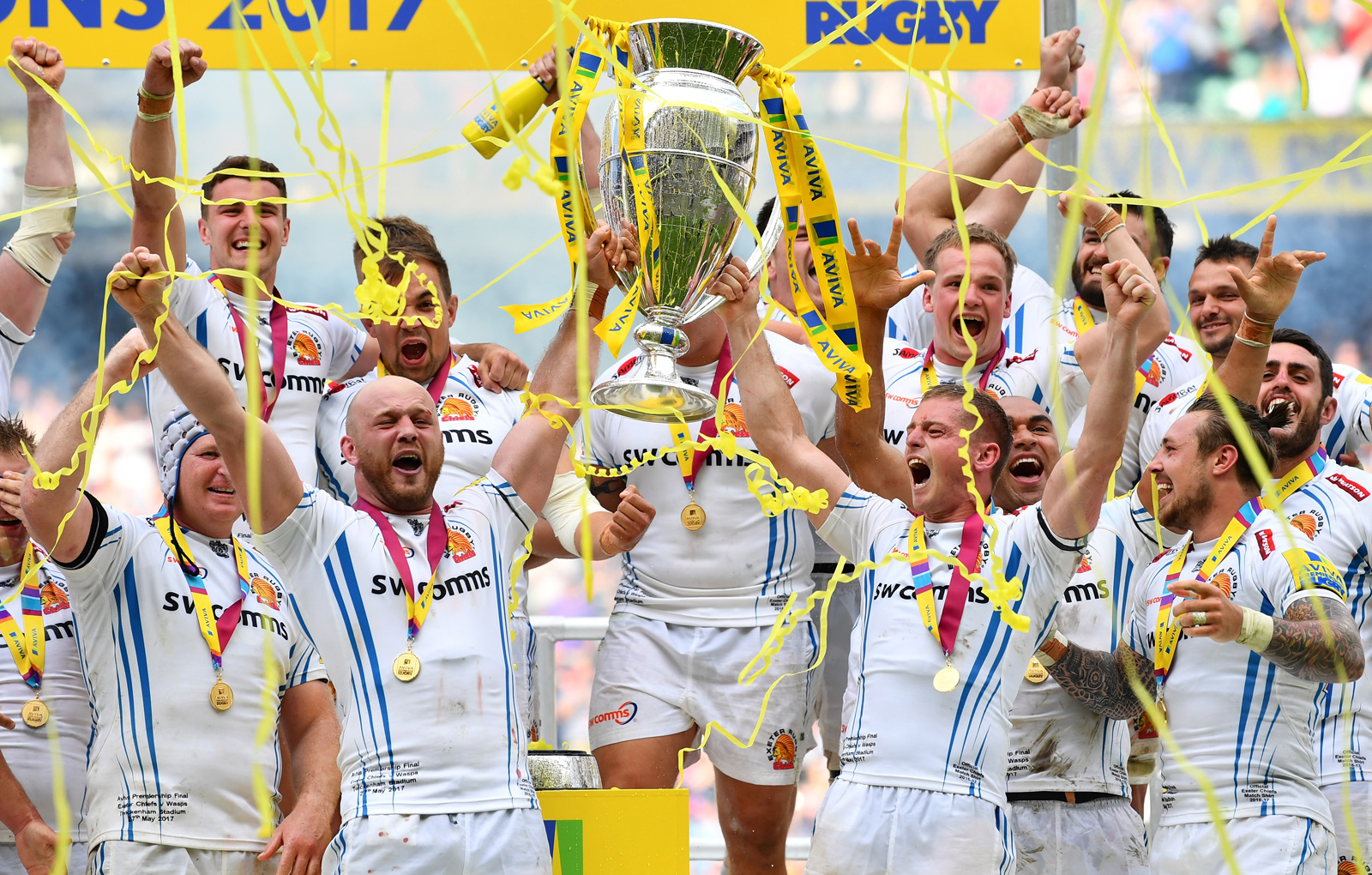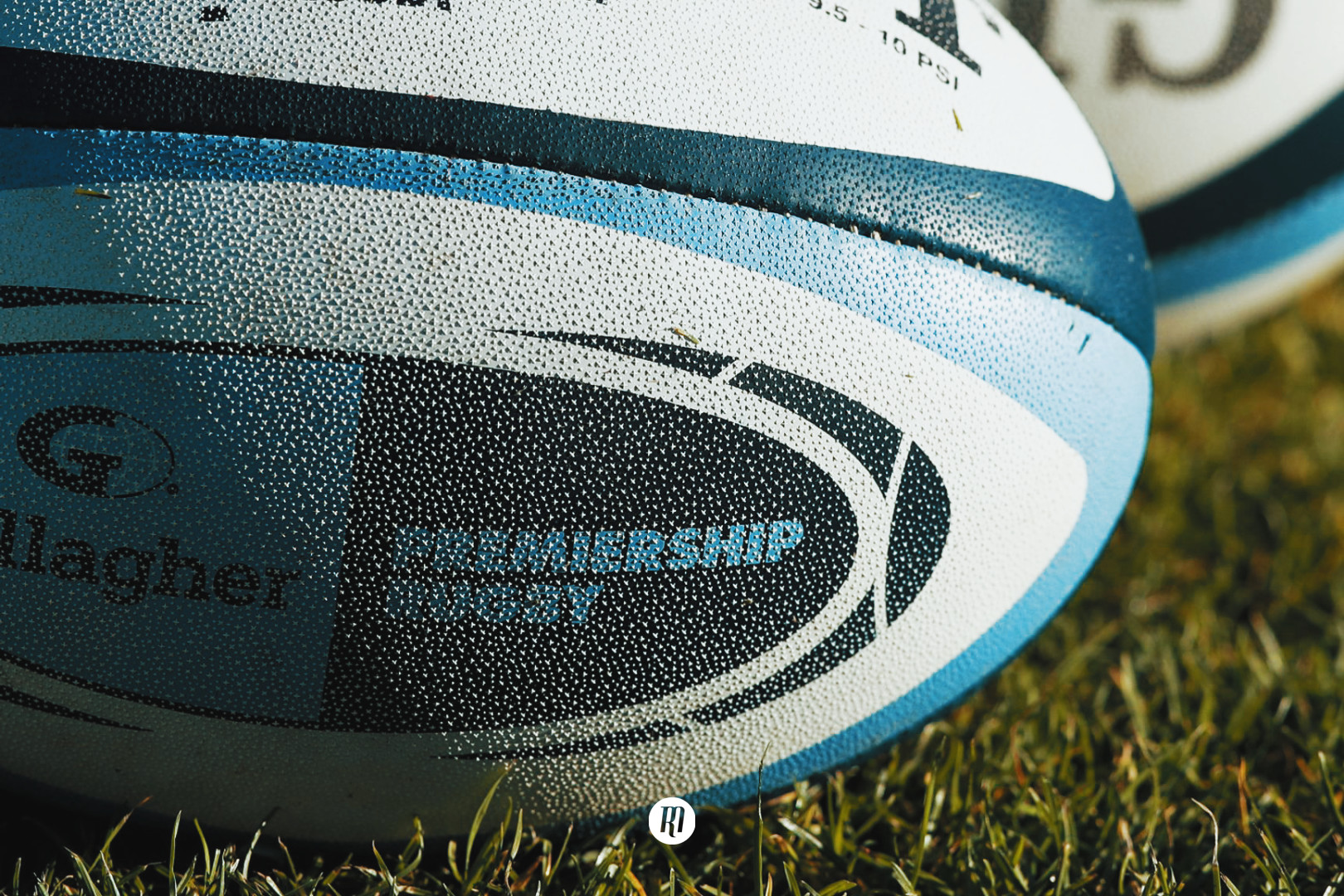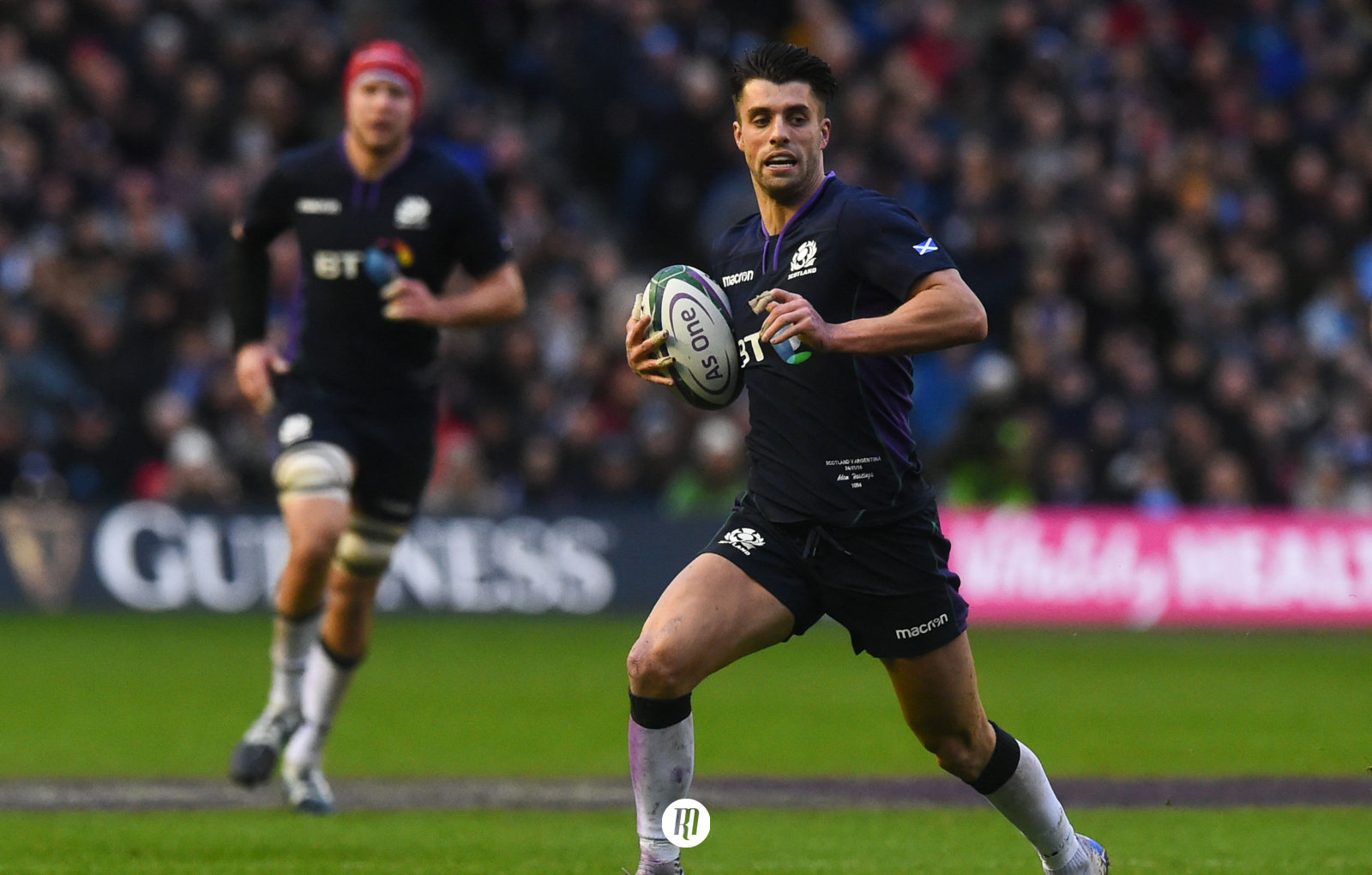Match Analysis: Wasps v Exeter Chiefs
Having finished the regular season tied on points at the top of the table, Wasps and Exeter delivered one of the most exhilarating finals that the tournament has ever seen. Join us as we take a look at the highs and lows of the game and its climatic finish.
On a hot May afternoon, the Aviva Premiership Final showed us something we already knew; this has been the best season of Premiership Rugby for a long time, if not ever.
After the gruelling regular season had left both Wasps and Exeter at the pinnacle of the Premiership table tied on points, no one could have imagined that a further 95 minutes would fail to separate them.
The scriptwriters had got it right though; it was Exeter’s day before the game had kicked off. They didn't just write an 80 minute show with the normal twists and turns however, they turned it into a fairytale, and made Gareth Steenson the hero. He was there on Wednesday 26th May 2010 when the club won promotion to the top flight of English Rugby, and on that day, put in a faultless 24 point performance, guiding the club to what many felt was their destiny.
And the same feeling stirred on the 27th May 2017. There was a certain expectation in the stifling, energy sapping air. For many, Exeter Chiefs have been the darlings of the league, the small guys that everyone wants to see succeed; but they're not so small anymore.
Match Overview
While the scriptwriters had written an ending that almost everyone could enjoy, one couldn't help but feel that they had thrown a few teasers in there too; the momentum, bar periods either side of half time, was absolutely in Exeter’s favour, but they never controlled the score. Perhaps it was the magnitude of the occasion, or perhaps it was the oppressive air that the players drew so deeply into their lungs, but whatever it was, both sides struggled to put together meaningful passages of play. When they did however, they invariably came away with points.
Ingenuity
Once the game was underway, it was clear that Exeter would do what Exeter do best; dominate at the scrum and the lineout, and retain possession. Their defensive line speed was high as ever, though this certainly slowed into the close of the first half, and will have contributed to Wasps’ regaining a foothold in the game.
Where Exeter excelled however, was allowing Wasps to believe that Exeter would do what Exeter do best. Twelve minutes into the game and the stage was set: Wasps had conceded a penalty for collapsing the scrum, and Steenson had put the ball out just short of the Wasps 22. Going into the game, all would agree that this is a position of great strength for Exeter on which they have a habit of capitalising, and it would be an area that Wasps had worked hard on defending.
With that in mind however, Exeter decided to do something a little different. Luke Cowan-Dickie threw to Kai Horstman in the middle, and the forwards got into position for a drive, but this time, Thomas Waldrom, rather than joining the maul, turned and popped the ball to the marauding Cowan-Dickie, who drew Thomas Young at the back of the line out with him. By the time Mr. Young knew what was happening, it was too late; Cowan-Dickie popped the ball back inside to the onrushing Jack Nowell who had virtually a barn-door worth of space to run through. He duly glided past Josh Bassett, and ignited the tinderbox of passion that was Twickenham Stadium.
Indeed, for their second try, Exeter took a leaf out of the Wasps play book and put together a flowing back move from the base of a scrum that was rounded off by an offload from the incisive Olly Devoto to Phil Dollman. Another one of the ‘originals’, Dollman stretched for the line and registered his first try of the season.
After half an hour, Exeter were cruising and in control; they dominated the scrum and the lineout, were retaining possession, and the scoreboard was in their favour.
Wasps had other ideas though.
Tempo
Despite a period of about 20 minutes, bisected by the half time break, Wasps struggled to obtain any hold over the game. The statistics are not in their favour either, with Exeter having enjoyed a whopping 68% of possession and territory throughout the game. Testament to Wasps’ defensive duties was their tackle count which was over two times greater than Exeter’s.
Wasps were never out of contention though, and having seen their defence breached twice before the half hour mark, started to tug at the shirttails of the game. When they finally got hold of the ball in the opening half an hour, they forced their opportunities too much, and squandered opportunities searching for the elusive magical moment that would open the game up.
Once they settled a little however, and began to show some patience, they started to have a meaningful impact on the game. Despite this patience, they played with a high intensity, moving the ball away from contact, and the base of the ruck to catch the swift Exeter defence before they had chance to set.
It was from a slow ruck though that the ball was distributed to Cipriani, who bounced off his left leg back inside and opened up a gap for Tommy Taylor. Twisting round as he was felled, he managed to offload to Dan Robson, who lofted the ball to the ever-present virtuoso Jimmy Gopperth, who touched down beneath the posts.
Having converted the try, Wasps had cut the gap to four points and brought the first half to a close.
Fine Margins
Games of this magnitude are more often than not defined by the fine margins; tiredness, mistakes, a rush of blood to the head, or the unpredictability of a bouncing rugby ball. And so it was in this game, though the excruciating wait as to which side of the fence the game would fall would be a long time coming.
As it was, in the forty-third minute, fortune favoured those in black: quick hands from Daly and Gopperth created space on the wing for the irrepressible Christian Wade who, left one on one with the fullback, decided to chip through. It became a footrace between Wade and Woodburn; would he have beaten him? We will never know: the ball did what a rugby ball does best, and arbitrarily bounced back over the heads of the pair. It fell safely into the hands of Elliot Daly, who jumped the collapsing Olly Woodburn in front of him like a horse at the final fence of the Grand National, before trotting round to the finish line.
By the time the hour mark had come round, Exeter had gone from fourteen points to three up, to trailing twenty points to fourteen, and yet, it felt like we were all caught in the ether of destiny. The game was flowing inexorably to an ending that favoured Exeter, and even though the score didn’t seem to know it, they were winning.
In the final half an hour, Exeter put in one of the greatest shifts that has been seen for a long time. At one point, they had completed an unprecedented thirty-four phases. They kept driving forward, sometimes metres, sometimes centimetres, but always forward.
Wasps did incredibly well to maintain their discipline during this phase of the game, ensuring that they didn’t concede the penalty that would bring the game level and force it through to extra time; but of course, they did, and Nathan Hughes was the guilty party.
Despite this being perhaps the most pivotal moment of the game, Hughes had been the Himalayas to everyone else’s Peak District, making huge gains with the ball in hand and his omnipresence gave him the highest tackle count in the opening periods of the game.
JP had told him hands off, but he hadn’t heard. He rolled back with the ball in hand and assumed he had won the game for Wasps, forcing the Chiefs player to hold on, but the heartache on realising the referee’s decision was clear on his face.
The nervous hope on the faces of the Chiefs was matched only by the chasm that had formed in the hearts of the Wasps players; the touch of destiny’s hand was upon the fixture; Steenson’s boot delivered extra time for only the second time in the history of the final.
Extra Time
The first period of extra time undoubtably belonged to Wasps, and but for a few passes sticking, we might have been cheering them as winners of the game, but as I mentioned before, the flow of time had different designs.
As the first half of extra time had belonged to Wasps, the second absolutely belonged to Exeter; normal service was resumed. They controlled possession, and moved implacably towards the finish line. Indeed they crossed the whitewash in the fourteenth minute, but with no clear view of the ball, the try was disallowed. Scrum to Exeter five metres out.
1,936 minutes of rugby over the course of the season had failed to separate the two teams, but tiredness had pervaded the minds and bodies of the players so much by this point that it was almost inevitable that a mistake would seal the game. The scrum set, and as Chudley bent to roll the ball in, Matt Mullan began his slow and consequential fall to the floor; the whistle blew and the players stood to a raised arm.
The dejection in the faces of the Wasps players was palpable, despite the rallying cries of the indomitable Jimmy Gopperth. The Chiefs players were elated. The kick still needed to go over, but they must have felt like they had one hand on the trophy.
If Gareth Steenson wasn’t already the greatest Exeter player of all time, he certainly was by the end of this fixture; the penalty sailed over the posts and Exeter led the game 23-20.
There was still two minutes remaining in the game. Two excruciating minutes for Exeter to just hold onto the ball. The tomahawk chop rang through the stadium, willing the ball to stick, defying the nervous final moments. It must have seemed like an eternity. And then, five, four, three, two, one… Michele Campagnaro cleared to touch and Twickenham erupted.
Testament to the toll the game had taken on the players were the muted celebrations; you could see they had given everything. Wasps players lay strewn on the battlefield, so near to the pinnacle of the English game, but forced to endure another gruelling ascent to the summit next year.
No one would begrudge Exeter their victory though, they deserved it, and while the neutrals have enjoyed the romanticism of the Exeter novel, their fans must be elated to have reached a climax. One thing is for sure though, the novel is far from finished.

Filed under:
Gallagher Premiership, Match Analysis, Tactics Handbook, Exeter Chiefs, Wasps
Written by: Edward Kerr
Follow: @edwardrkerr · @therugbymag






